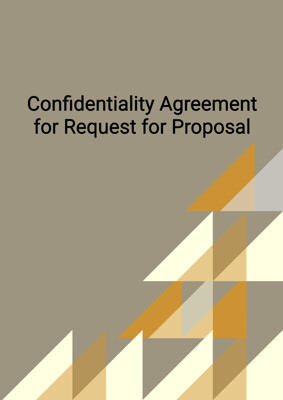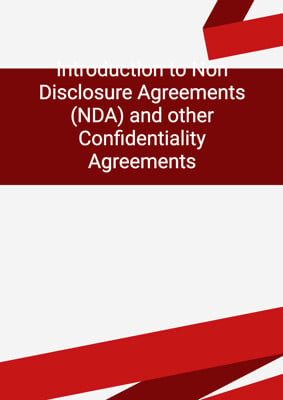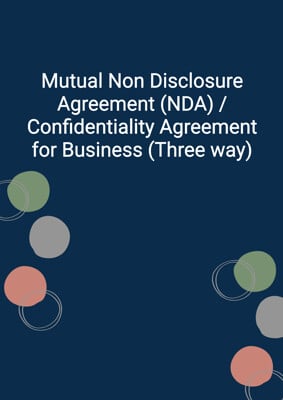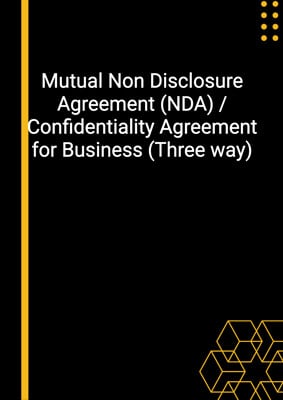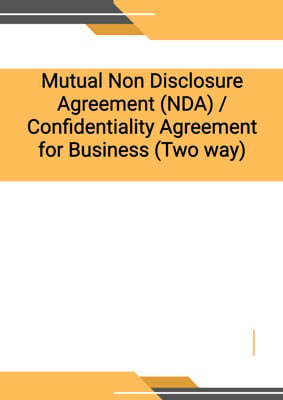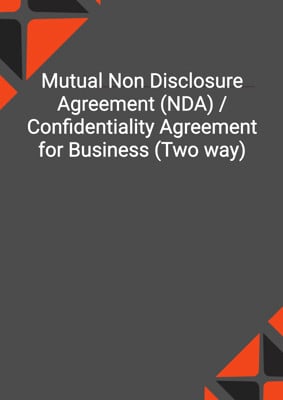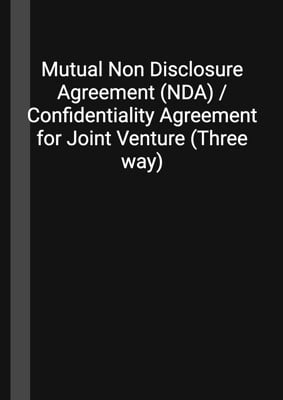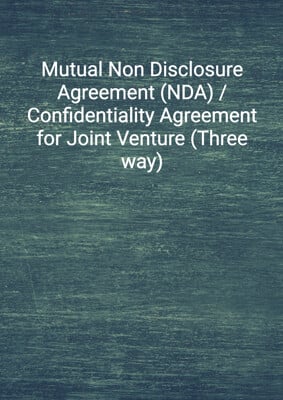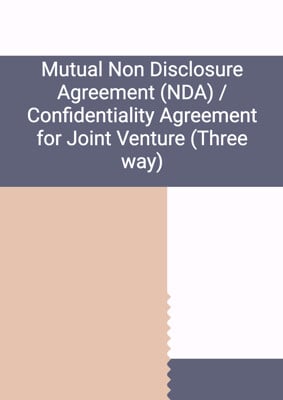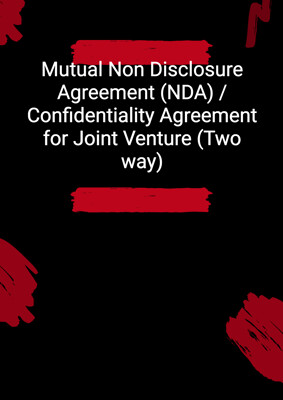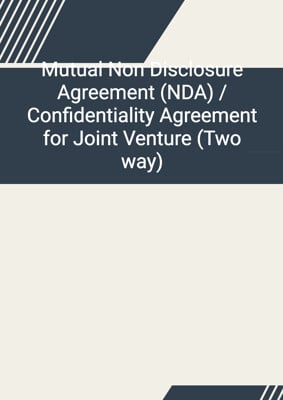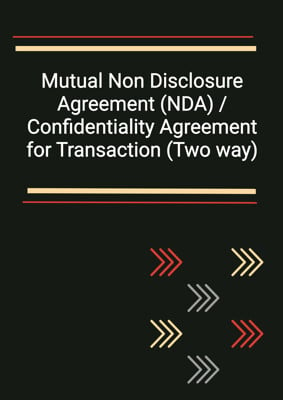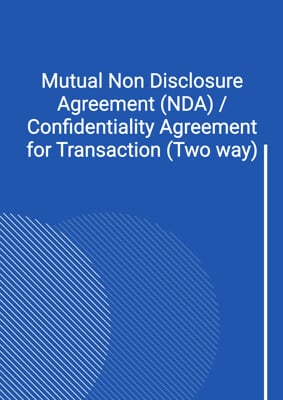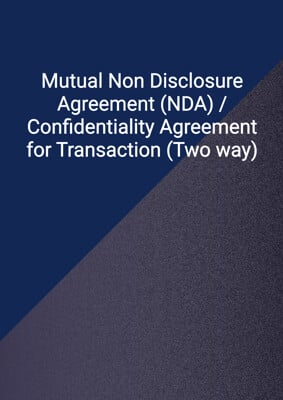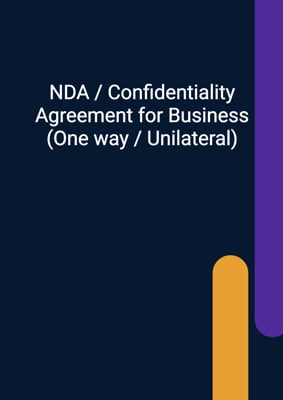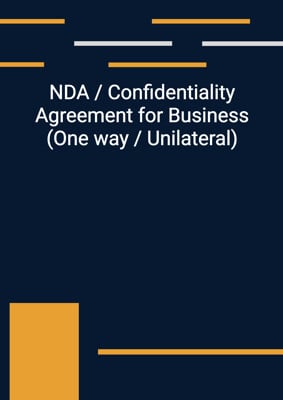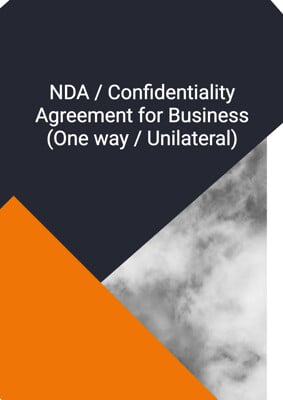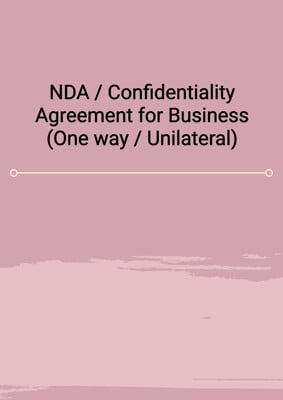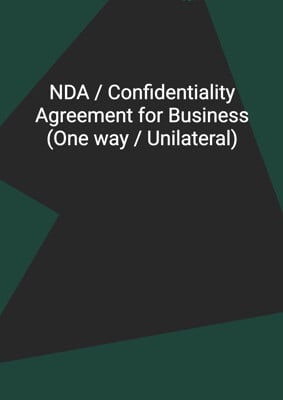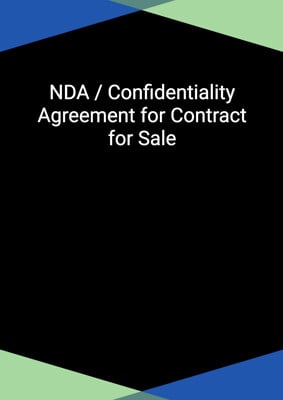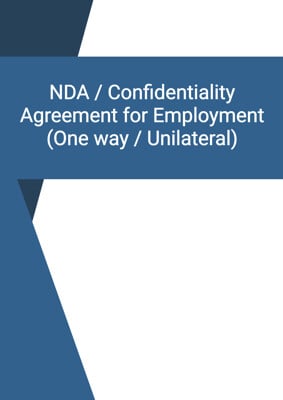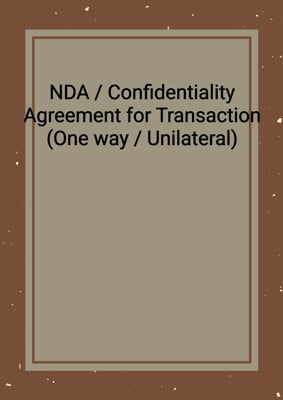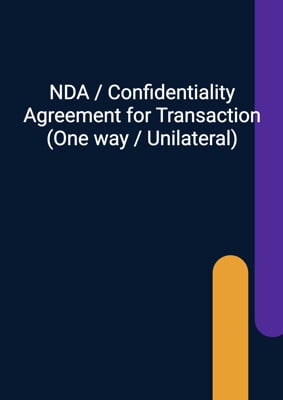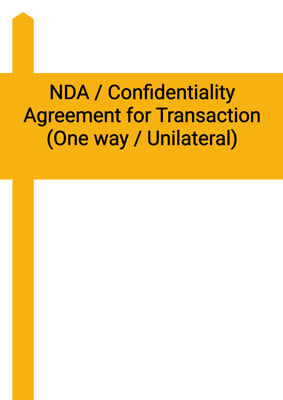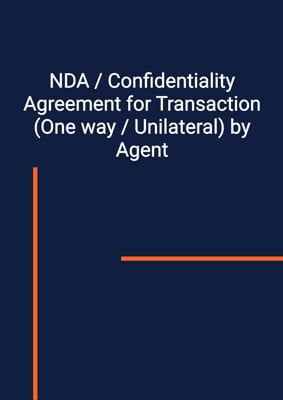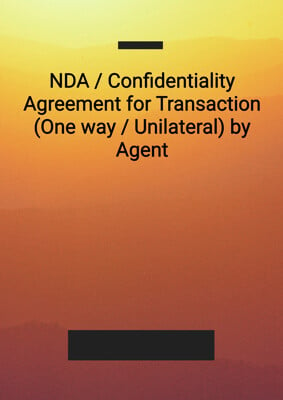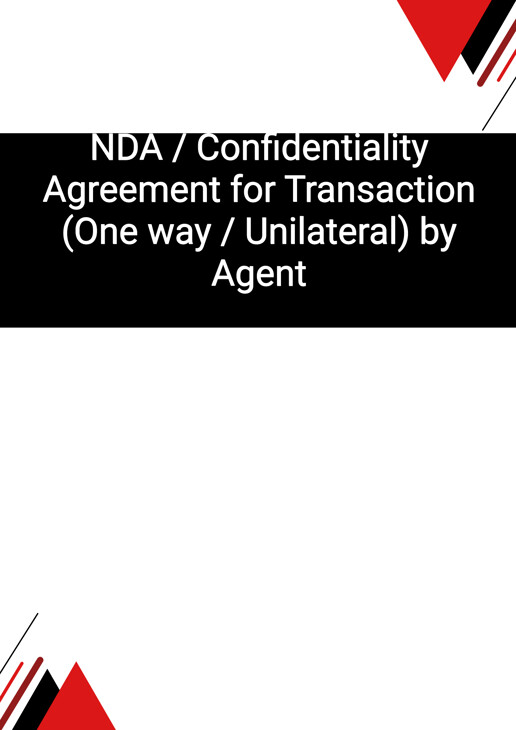
NDA / Confidentiality Agreement for Transaction (One way / Unilateral) by Agent
Neutral
One way Non Disclosure agreement for Discloser to reveal detail of the Transaction to the Disclosee by an Agent (e.g. bank or securities firm) of the Principal. It imposes a unilateral obligation of confidentiality on the party who receives the information. This is drafted in neutral form.
How to Tailor the Document for Your Need?
01
Create Document
Fill in the details of the parties. You can click the "Fill with Member’s Information" button to complete it with information saved to your account.
02
Fill Information
Please fill in any additional information by following the step-by-step guide on the left hand side of the preview document and click the "Next" button.
03
Get Document
When you are done, click the "Get Document" button and you can download the document in Word or PDF format.
04
Review Document
Please get all parties to review the document carefully and make any final modifications to ensure that the details are correct before signing the document.
Document Preview
Document Description
This NDA / Confidentiality Agreement for Transaction (One way / Unilateral) by Agent is a legal document that establishes a confidential relationship between the discloser and the disclosee. The document is important as it ensures that any confidential information shared between the parties remains protected and cannot be disclosed to third parties without proper authorization.
The entire document consists of several sections that outline the terms and conditions of the agreement. The first section, titled 'Interpretation,' provides definitions for key terms used throughout the document, such as 'connected persons' and 'information.' This section ensures that both parties have a clear understanding of the terminology used in the agreement.
The second section, titled 'Obligations of Confidentiality,' outlines the responsibilities of the disclosee regarding the confidential information shared by the discloser. The disclosee agrees to maintain the confidentiality of the information, use it exclusively for the specified purpose, and not reproduce or store it in an externally accessible system.
The third section, titled 'Confidentiality Measures,' provides additional measures to maintain the confidentiality of the disclosed information. The disclosee is required to limit access to the information to approved representatives who need it for the specified purpose. They must also keep the information separate from other documents and apply appropriate security measures to prevent unauthorized access.
The fourth section, titled 'Excepted Information,' specifies certain circumstances where the obligations of confidentiality do not apply. For example, if the information becomes publicly available or was already known to the disclosee before disclosure, it may be exempt from the confidentiality requirements.
The fifth section, titled 'Return of Information,' outlines the disclosee's obligation to return or destroy all documents and materials containing the information upon request from the discloser. Even after completion of the purpose or return of the documents, the disclosee remains bound by the confidentiality obligations.
The sixth section, titled 'Disclaimer and Warranty,' clarifies that the discloser does not make any representations or warranties regarding the accuracy or completeness of the information. The disclosee agrees that neither the discloser nor any connected persons will be liable for any use of the information.
The seventh section, titled 'Confidentiality,' emphasizes the confidentiality of the agreement itself and prohibits the disclosee from revealing the negotiations or any information related to them without prior written consent.
The eighth section, titled 'Remedies,' states that damages would not be an adequate remedy for a breach of the agreement and allows the discloser to seek equitable relief, such as injunction or specific performance.
The ninth section, titled 'Waiver,' clarifies that a waiver of any provision or failure to perform does not constitute a waiver of any other provision or future breaches. It also states that the rights and remedies provided in the agreement are cumulative and not exclusive.
The tenth section, titled 'Assignment,' prohibits the disclosee from assigning any rights or obligations under the agreement.
The eleventh section, titled 'Entire Agreement,' confirms that the agreement represents the entire understanding between the parties and supersedes any prior representations or warranties.
The twelfth section, titled 'No License,' clarifies that the agreement does not grant any intellectual property rights to either party.
The thirteenth section, titled 'Governing Law and Jurisdiction,' specifies the governing law and jurisdiction for any disputes arising from the agreement.
The fourteenth section, titled 'Notices and Service,' outlines the requirements for serving notices under the agreement, including the methods of delivery and the addresses of the parties.
The fifteenth section, titled 'Rights under Contracts for Third Parties,' acknowledges that the principal or its connected persons have the right to enforce the terms of the agreement. However, other third parties do not have the right to enforce the terms unless agreed upon by the parties.
In summary, this NDA / Confidentiality Agreement for Transaction (One way / Unilateral) by Agent is a comprehensive document that establishes the confidentiality obligations of the disclosee regarding the disclosed information. It covers various aspects, including definitions, obligations of confidentiality, confidentiality measures, exceptions, return of information, disclaimers, remedies, and more.
How to use this document?
1. Review the entire document to understand its purpose and scope.
2. Familiarize yourself with the definitions provided in the 'Interpretation' section to ensure a clear understanding of the terms used throughout the agreement.
3. Understand your obligations of confidentiality as outlined in the 'Obligations of Confidentiality' section. Ensure that you only use the information for the specified purpose and do not reproduce or store it in an externally accessible system.
4. Implement the necessary confidentiality measures described in the 'Confidentiality Measures' section. Limit access to the information to approved representatives and keep it separate from other documents.
5. Be aware of the circumstances where the obligations of confidentiality do not apply, as stated in the 'Excepted Information' section. If the information falls under any of these exceptions, it may not be subject to the confidentiality requirements.
6. Comply with the requirements for returning or destroying the information as outlined in the 'Return of Information' section. Ensure that all documents and materials containing the information are either returned to the discloser or destroyed.
7. Understand the disclaimers and warranties provided in the 'Disclaimer and Warranty' section. Acknowledge that the discloser does not guarantee the accuracy or completeness of the information and that they will not be liable for any use of the information.
8. Maintain the confidentiality of the agreement itself, as stated in the 'Confidentiality' section. Do not disclose the negotiations or any information related to them without prior written consent.
9. Be aware of the available remedies in case of a breach of the agreement, as described in the 'Remedies' section. Understand that the discloser may seek equitable relief, such as injunction or specific performance.
10. Ensure that you do not assign any rights or obligations under the agreement, as stated in the 'Assignment' section.
11. Understand that the agreement represents the entire understanding between the parties, as stated in the 'Entire Agreement' section. Any prior representations or warranties are superseded by the agreement.
12. Note that the agreement does not grant any intellectual property rights to either party, as stated in the 'No License' section.
13. Familiarize yourself with the governing law and jurisdiction specified in the 'Governing Law and Jurisdiction' section. Understand the applicable laws and the jurisdiction for resolving any disputes.
14. Follow the requirements for serving notices under the agreement, as outlined in the 'Notices and Service' section. Ensure that any notices are delivered in the specified manner.
15. Understand that the principal or its connected persons have the right to enforce the terms of the agreement, as stated in the 'Rights under Contracts for Third Parties' section. However, other third parties do not have the right to enforce the terms unless agreed upon by the parties.
Not the right document?
Don’t worry, we have thousands of documents for you to choose from:

